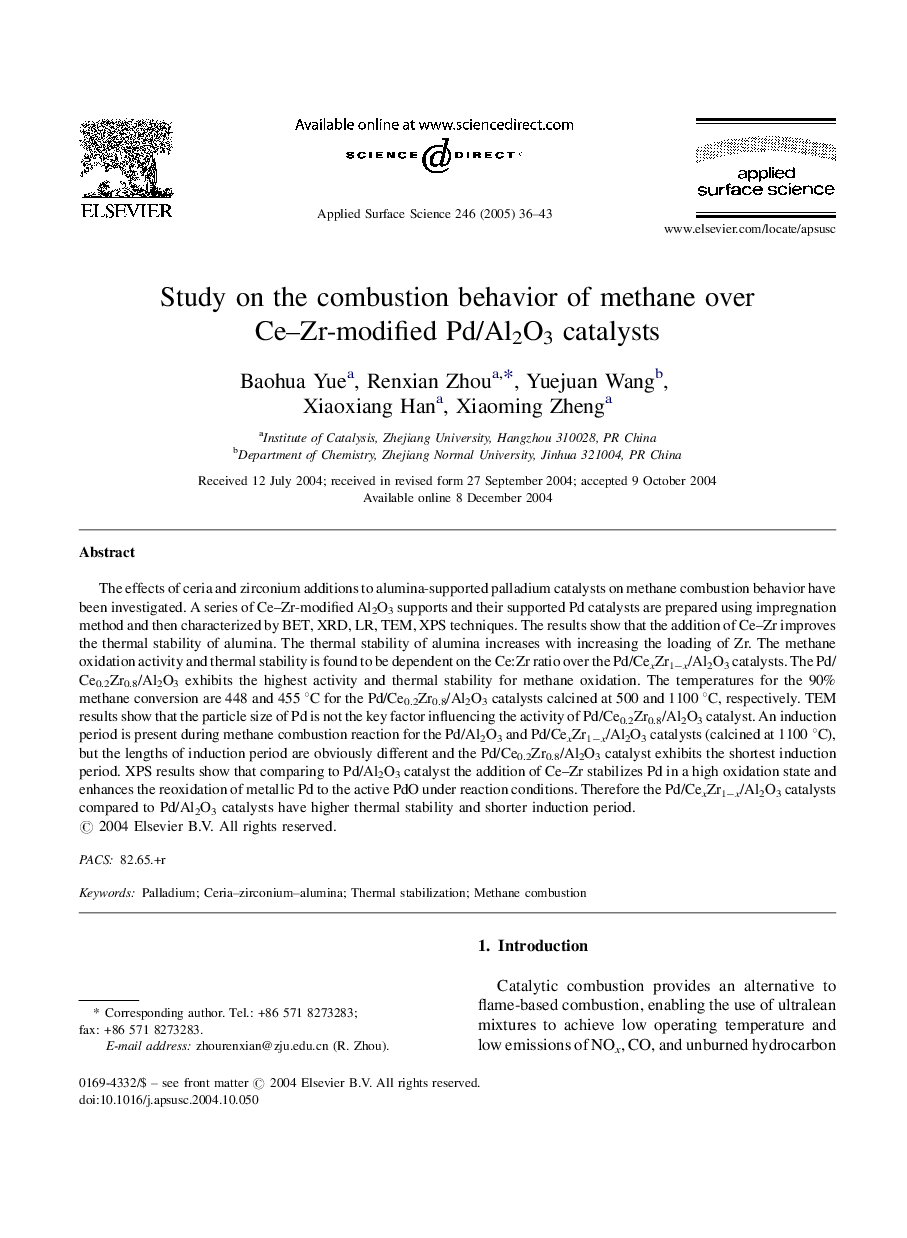| Article ID | Journal | Published Year | Pages | File Type |
|---|---|---|---|---|
| 9567237 | Applied Surface Science | 2005 | 8 Pages |
Abstract
The effects of ceria and zirconium additions to alumina-supported palladium catalysts on methane combustion behavior have been investigated. A series of Ce-Zr-modified Al2O3 supports and their supported Pd catalysts are prepared using impregnation method and then characterized by BET, XRD, LR, TEM, XPS techniques. The results show that the addition of Ce-Zr improves the thermal stability of alumina. The thermal stability of alumina increases with increasing the loading of Zr. The methane oxidation activity and thermal stability is found to be dependent on the Ce:Zr ratio over the Pd/CexZr1âx/Al2O3 catalysts. The Pd/Ce0.2Zr0.8/Al2O3 exhibits the highest activity and thermal stability for methane oxidation. The temperatures for the 90% methane conversion are 448 and 455 °C for the Pd/Ce0.2Zr0.8/Al2O3 catalysts calcined at 500 and 1100 °C, respectively. TEM results show that the particle size of Pd is not the key factor influencing the activity of Pd/Ce0.2Zr0.8/Al2O3 catalyst. An induction period is present during methane combustion reaction for the Pd/Al2O3 and Pd/CexZr1âx/Al2O3 catalysts (calcined at 1100 °C), but the lengths of induction period are obviously different and the Pd/Ce0.2Zr0.8/Al2O3 catalyst exhibits the shortest induction period. XPS results show that comparing to Pd/Al2O3 catalyst the addition of Ce-Zr stabilizes Pd in a high oxidation state and enhances the reoxidation of metallic Pd to the active PdO under reaction conditions. Therefore the Pd/CexZr1âx/Al2O3 catalysts compared to Pd/Al2O3 catalysts have higher thermal stability and shorter induction period.
Related Topics
Physical Sciences and Engineering
Chemistry
Physical and Theoretical Chemistry
Authors
Baohua Yue, Renxian Zhou, Yuejuan Wang, Xiaoxiang Han, Xiaoming Zheng,
